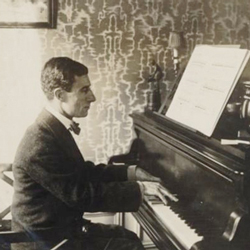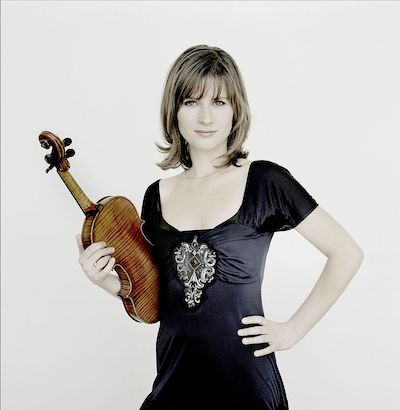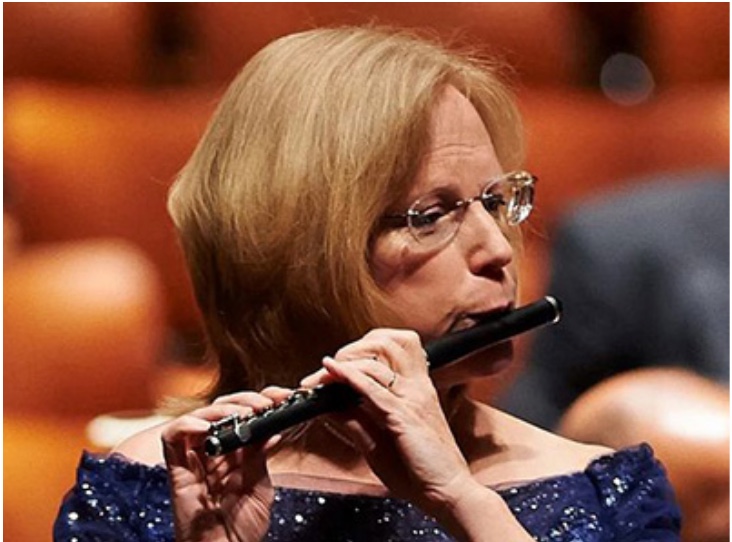by Daniel Hathaway
Worth waiting for: Back before COVID came to town, the Cleveland Orchestra commissioned a concerto from Israeli composer Oded Zehavi for Mary Kay Fink, its principal piccolo player. It’s been waiting in the wings for a premiere ever since, but will finally be heard at Severance Music Center today at 7:30 (repeated Friday at 7:30 and Saturday at 8). Fabio Luisi conducts. Read a conversation with Fink here, and an interview with Zehavi here.
Imani Winds at Oberlin: Tonight at 7:30 in Warner Concert Hall, the Oberlin alumni-founded woodwind quintet collaborates with cellist Seth Parker Woods, pianist Cory Smythe, and actor Michael Braugher in a program anchored by Jeff Scott’s Fallen Petals of Nameless Flowers, which tells the stories of four Michiganders who were sentenced to life without parole as juveniles. Read a preview here.
Click here to visit the ClevelandClassical.com Concert Listings page for more information.
NEWS BRIEFS:
Cuyahoga County announced Wednesday afternoon that County Executive Chris Ronayne will nominate Leonard DiCosimo and Gina Vernaci and reappoint Karolyn Isenhart to serve three-year terms on the five-member board of Cuyahoga Arts & Culture. CAC distributes $12 million a year in cigarette taxes to arts and cultural organizations, individual artists and community-based projects. The agency has been criticized for appointing trustees who lack the arts qualifications stipulated in its bylaws. Read the CAN Journal announcement here.
Last weekend, Cleveland Orchestra music director Franz Welser-Möst led the Vienna Philharmonic in three concerts in New York’s Carnegie Hall, which led New York Times critic Joshua Barone to comment at length in a Critic’s Notebook entry on March 4:
Welser-Möst has not only penetrated the Philharmonic’s inner circle, but also has done so while leading the Cleveland Orchestra — another top-notch ensemble, though one whose sound differs enormously from that of the Viennese.
The main difference between the Cleveland Orchestra and the Vienna Philharmonic is that while the Clevelanders have been criticized for giving performances that are too good, no one could ever accuse the Viennese of the same.
. . .
If the Clevelanders like their music lean, the Viennese like it fatty, “mit Schlag.” Together, these orchestras embody two approaches to musical excellence. And able to walk either path with them is Welser-Möst.
TODAY’S ALMANAC:
by Jarrett Hoffman

A perfect example of the latter category is a piece The Cleveland Orchestra played a year ago last week: Ravel’s famous orchestration of Modest Mussorgsky’s Pictures at an Exhibition. For an illuminating comparison, listen to Evgeny Kissin play the original version for piano in a live performance from 2002 here, then hear The Cleveland Orchestra and Lorin Maazel in a 1979 recording here.

Wonderful writing. But what is particularly fascinating about the article, titled “Politics Is Personal, and Professional,” is, well, the political aspect, about the power of culture to have “a positive or negative influence on the world,” as Batiashvili says. She recounts being invited to perform with the Rotterdam Philharmonic and Valery Gergiev — the conductor who is also a Putin ally, who had endorsed Russia’s annexation of Ukraine’s Crimean peninsula, supported Russia’s policy toward Georgia in the conflict over South Ossetia, and who has since refused to denounce the war in Ukraine.
“I didn’t want to be part of this whole society of musicians who actually disagree with him totally about his position, about his support of Putin, but don’t ever say anything,” Batiashvili told Fonseca-Wollheim. So, as an encore burning with protest, she played Georgian composer Igor Loboda’s Requiem for Ukraine.
Read that article here, and listen to Batiashvili play the Requiem for Ukraine here in an event from March 2022 titled “Solidarity Concert for Ukraine.”




